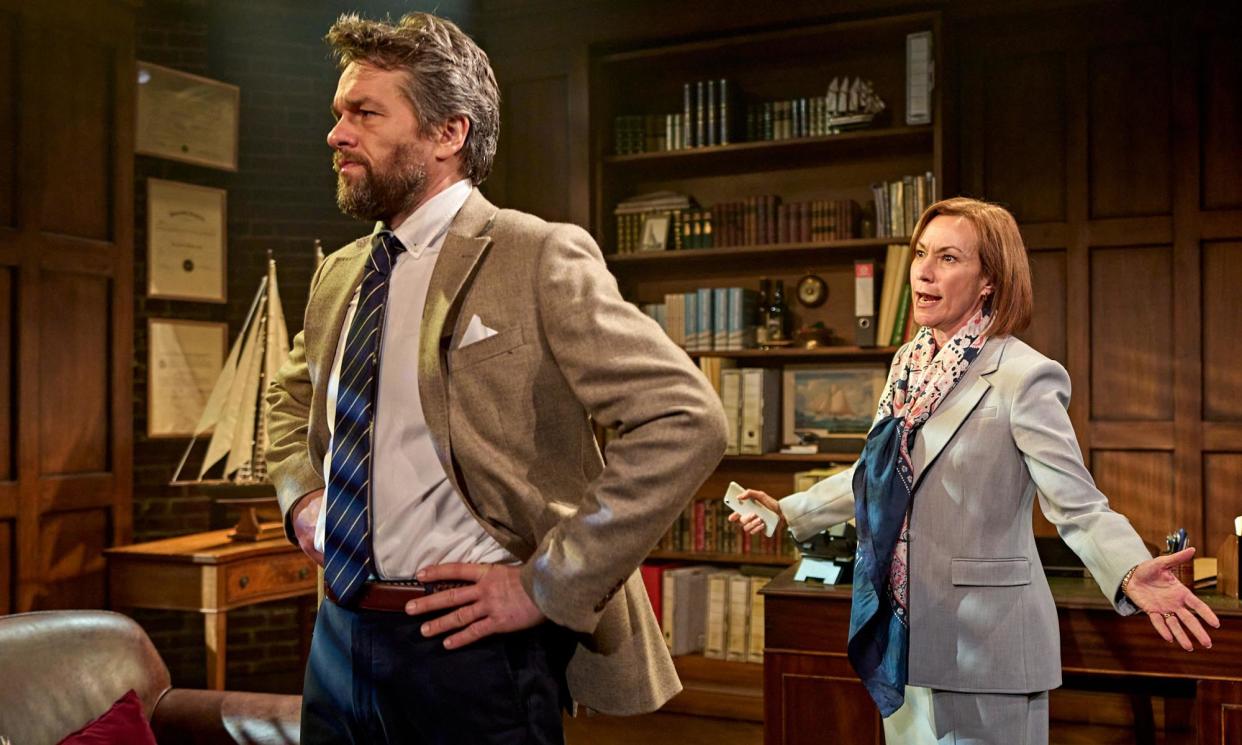Power of Sail review – campus cancel culture drama ripe for a Netflix series

‘I’m one of the good guys,” insists a beleaguered Harvard professor facing student protests after inviting a white supremacist to be part of a university debate on extremism. The defence, for Charles Nichols (Julian Ovenden), is that illogical or offensive arguments need to be heard in order to be dismantled, though hand-wringing principal Amy Katz (Tanya Franks) suggests he is doing this as an attention-grabbing career move.
Paul Grellong’s intelligent if schematic play incorporates themes of cancel culture, Nazi legacies and the intersection between freedom of expression and hate speech.
Nichols has shades of Philip Roth’s shamed yet unrepentant academic in The Human Stain
Nichols, eloquent and arrogant, has shades of Philip Roth’s shamed yet unrepentant academic in The Human Stain, as well as David Mamet’s professor in Oleanna, in his seemingly reasonable arguments and denials of any wrongdoing.
The white supremacist in question is never given a voice directly, but the story abounds with other Harvard academics with big egos and crossover gigs on TV who take a stand on the debate, as well as Nichols’ ambitious graduate students.
Some scenes rehearse their political positions openly. Where this might have felt expositional or static, it grips with its adrenalised dialogue.
But this is coupled with a briskness in plot – one twist after another – that pushes it forward at a rate of knots, while almost all of the characters turn out to be appalling in ways that feel too flat. Still, jumps in time are managed with immense clarity both in script and the optics, under Dominic Dromgoole’s accomplished direction.
The cast excels, too, especially Giles Terera, playing Nichols’ former protege, now star academic. He has one of the most visceral scenes with a quietly insidious “white power” student that truly shocks.
Paul Farnsworth’s remarkable set design unfolds from Nichols’ oak-panelled office, shaped like a ship’s bow, to a brick-walled train station and back to Harvard with sleek rapidity.
It seems abortive in its abrupt ending but it is all so slickly watchable until then – pacy and episodic, rather like a Netflix series – that you want it to continue. As unlikable as these characters are, you want to stay with them. Bring on the TV series?
• At Menier Chocolate Factory, London, until 12 May.


